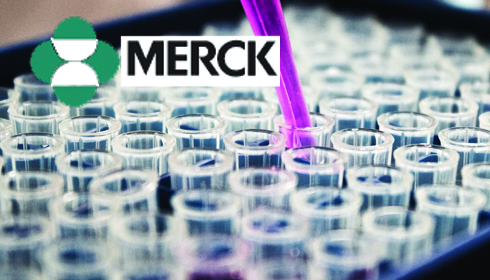
MSD's Monoclonal Antibody Shows Promising RSV Prevention in Infants
US based pharmaceutical giant Merck, known as MSD outside of the United States and Canada, recently announced positive results from its Phase 2b/3 clinical trial (MK-1654-004) of clesrovimab, an investigational monoclonal antibody designed to protect infants from respiratory syncytial virus (RSV) during their first season of exposure. These findings, presented at IDWeek 2024, show significant reductions in RSV-associated disease, including hospitalisations; thus, they support the promise of clesrovimab as a game changer in RSV prevention in both healthy and at-risk newborns.
RSV, the leading cause of hospitalisation in newborns worldwide, underscores the importance of effective preventive interventions. "The MK-1654-004 study evaluated a broad spectrum of RSV disease, ranging from mild outpatient illness to severe disease requiring hospitalization," said Dr. Octavio Ramilo, a major investigator for the trial. These encouraging findings showing a lower incidence of RSV illness, including hospitalisations, underline the possibility of clesrovimab to significantly help to reduce the ongoing burden of RSV on newborns and their families."
Through both 5-month (Day 150) and 6-month (Day 180) evaluations, Clesrovimab showed constant efficacy. The primary outcome at five months showed a 60.4% reduction (95% CI: 44.1–71.9) in RSV-associated medically attended lower respiratory infections (MALRI) requiring at least one sign of severity. This effect persisted at six months with a 59.5% decrease (95% CI: 43.3–71.1), therefore indicating ongoing protection across time.
We noted an 84.2% reduction (95% CI: 66.6–92.6) in RSV-associated hospitalisations over five months and an 81.3% reduction (95% CI: 62.5–90.7) over six months. Reduced by 90.9% (95% CI: 76.2–96.5) at 5 months and 91.2% (95% CI: 77.2–96.6) at 6 months, lower respiratory infection hospitalisations (LRI) likewise experienced a strong drop. Both times, clesrovimab greatly decreased the number of cases of severe MALRI by 91.7% (95% CI: 62.9–98.1), showing how important it is for treating the worst RSV-related problems.
According to the statement released by Merck, post-hoc analysis further showed that clesrovimab lowered MALRI instances requiring two or more markers of severity by 88.0% at 5 months and 87.2% at 6 months respectively.
The safety profile of clesrovimab appeared to be good, with adverse events (AEs) and severe AEs being equivalent across the clesrovimab and placebo groups. Significantly, there were no recorded treatment-related or RSV-related deaths during the trial, therefore supporting the safety of the antibody for general usage.
"These clinically meaningful findings also reinforce the potential for clesrovimab to be the first and only immunisation designed to be the first and only immunisation designed to protect both healthy and at-risk infants using the same dose, regardless of weight," Senior Vice President of Infectious Diseases and Vaccines at Merck Research Laboratories said in praising the data presented.
With the intention of making clesrovimab available for infants as early as the 2025–26 RSV season, Merck is hopeful about bringing it into worldwide regulatory conversations. The development of a long-lasting, effective prophylactic like clesrovimab could significantly reduce infection and hospitalisation rates, providing much-needed relief to both families and healthcare providers as RSV continues to burden healthcare systems, particularly during peak seasons.